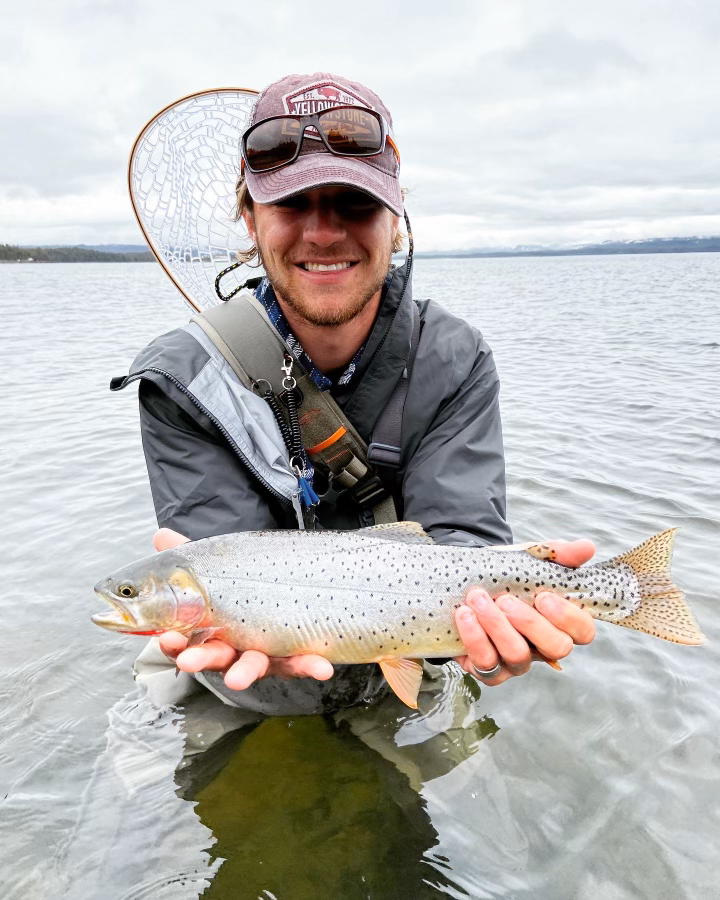After several days of heavy rain, SCA bison intern Bennett Collins and others noticed last weekend that the Gardiner River on the north end of Yellowstone National Park was running higher than usual. Yet there seemed to be no reason for concern. That rapidly changed.
“We went to bed Sunday night thinking nothing of it,” Bennett says, “and we woke up Monday morning to a brand new reality.”
By now you’ve seen the stunning images. That large house swept away by a swollen, raging river? That was home to several park employees and their families, including two of Bennett’s supervisors. They lost everything.
There are six SCA interns currently serving at Yellowstone. All are safe and in good condition, their lodging undisturbed. “I live on Fort Yellowstone,” Bennett notes, “a thousand feet above the river that took out portions of the road.”
However, with that road no longer navigable, the 25-year-old Virginian says what was a 15-minute commute to the park office in Mammoth Hot Springs now requires a five-hour detour. “We tried to drive in Monday morning,” he says, “but we quickly realized the road was gone.”

Although the 2.2-million-acre park is now closed, four SCA fisheries interns stationed at Yellowstone Lake, in the less-impacted southeastern corner of the park, are continuing their work curbing invasive lake trout. Twenty-three year old Garrison Ferone is happy to carry on, though he notes the absence of visitors is somewhat eerie. “I got here in the middle of May, when a lot of tourists were starting summer vacations,” he says. “Now, it’s kind of a wasteland. No cars, no people. You’d think it would be kind of cool, but…”
Some portions of Yellowstone will not reopen for months. Roads and bridges in and around the park are washed out. Many areas remain without electricity and water. Superintendent Cam Sholly declared “It is not going to be an easy rebuild.”
At Mammoth Hot Springs, Bennett and fellow intern Lindsey Hanneken also have been instructed to fulfill their duties as best they can, studying the impact of grazing bison on park grasslands. “We’ve lost road access to six of our 14 grazing sites in the Lamar Valley,” Bennett states. “I don’t know if we’ll see those sites again this summer. Luckily, we can still study the data we collected earlier. Power was restored to the office [Tuesday].”
In addition to their SCA responsibilities, Bennett and Garrison both hope to assist those affected by the flooding and aid in the clean-up. “I feel for the park,” says Bennett. “Having to see things like this in the oldest park in America, it’s devastating. The destruction is unfortunate, but this is nature.
“I’ve always admired the saying ‘We cannot direct the winds but we can adjust the sails.’ We are all now looking for ways to help and I know this community will respond well.”
 Although the 2.2-million-acre park is now closed, four SCA fisheries interns stationed at Yellowstone Lake, in the less-impacted southeastern corner of the park, are continuing their work curbing invasive lake trout. Twenty-three year old Garrison Ferone is happy to carry on, though he notes the absence of visitors is somewhat eerie. “I got here in the middle of May, when a lot of tourists were starting summer vacations,” he says. “Now, it’s kind of a wasteland. No cars, no people. You’d think it would be kind of cool, but…”
Although the 2.2-million-acre park is now closed, four SCA fisheries interns stationed at Yellowstone Lake, in the less-impacted southeastern corner of the park, are continuing their work curbing invasive lake trout. Twenty-three year old Garrison Ferone is happy to carry on, though he notes the absence of visitors is somewhat eerie. “I got here in the middle of May, when a lot of tourists were starting summer vacations,” he says. “Now, it’s kind of a wasteland. No cars, no people. You’d think it would be kind of cool, but…”